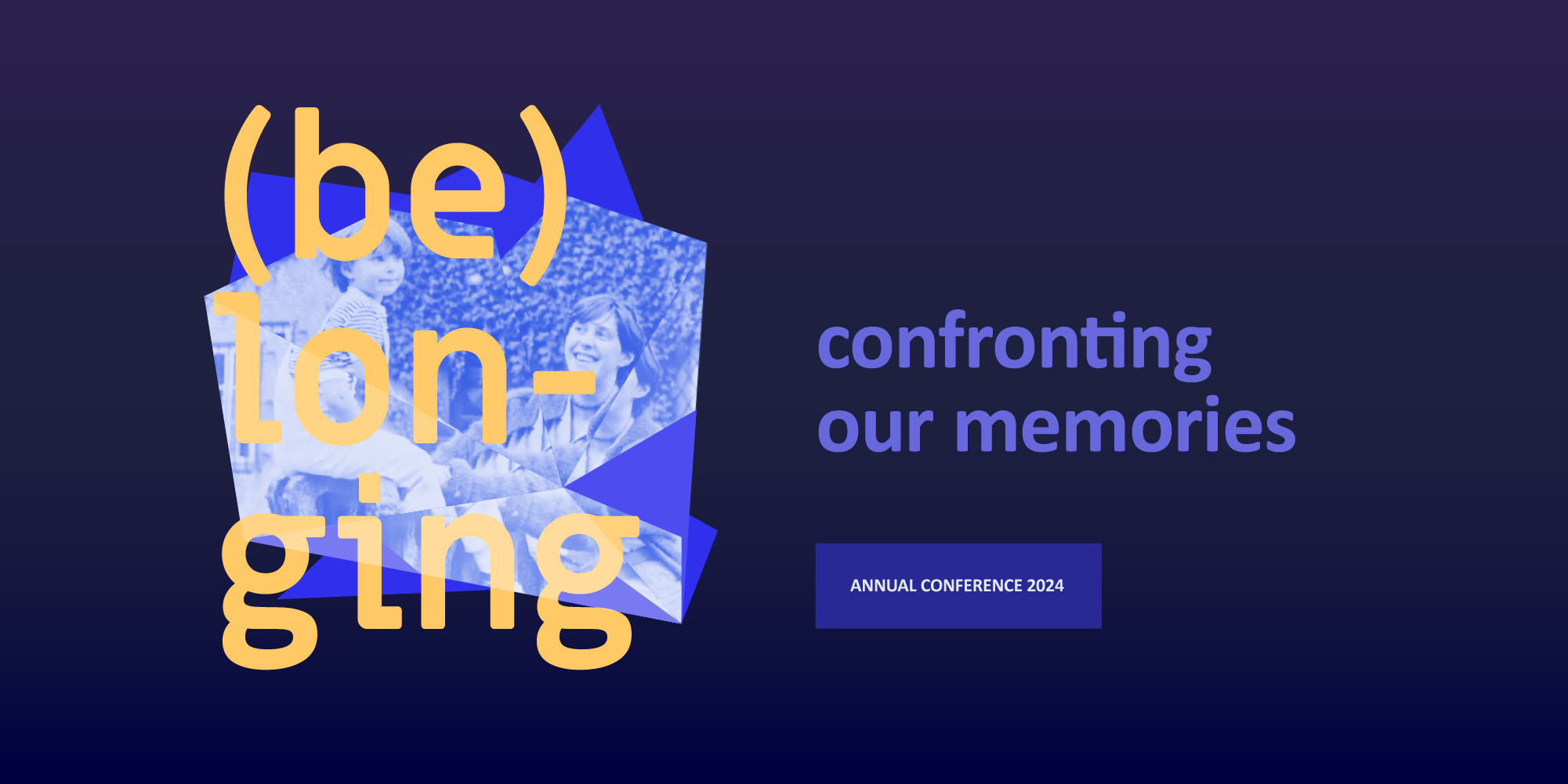

30th Annual Conference – (Be)longing: Confronting our memories
April 25, 2024 @ 8:00 am - April 27, 2024 @ 5:00 pm
What are the factors that make you feel like you belong somewhere or not? Whether it is a place, a time, a family, a country, a community, or group of friends. This seemingly innocent question is key because it lies at the heart of some of the main societal questions of today. The reason is that the answers create in and out groups that divide and unite societies. People who belong seem to be entitled to more rights than those who don’t belong, perhaps most clearly expressed by politicians who state that their own people should come first. They do so to appeal to the majority, but at the expense of minorities (who come second at best).
At the same time, it is also important for anyone to feel that you belong somewhere, that you are part of something bigger. We, people, are social animals, after all.
Key questions
- What can we do to create a space where everyone feels welcome? Whether they are students in a classroom, teachers at a conference, or newcomers in a society?
- Should history education purposely be used for identity building? To promote a sense of belonging? Or is this instrumentalising history education?
- What influences what we remember, and what we forget?
- What are the implications for history education, and the use of testimonies.
What’s on the programme?
There will be a mix of activities offered. Participants can choose to participate in parallel workshops, focus group discussions, and optional social and cultural activities (such as an intercultural night, pub-quiz and museum visits). In additional there will be plenary workshops, a keynote lecture, a panel discussion, school visits, and a celebrative dinner, which all conference participants can join.
The General Assembly of EuroClio (which is open to the public, and also possible to follow online) will take place on Saturday afternoon.
The Conference will result in:
- The continued professional development of the conference participants.
- Strengthened cross-border cooperation among teachers and teachers’ associations.
- A working paper based on the outcomes of the focus group discussions.
- A series of recorded sessions, to be shared on EuroClio’s YouTube channel.
Strands
There are three strands that run through the conference.
History and Identity
The way we remember the past, privately, publicly, and collectively, influences our identity, how we see ourselves and how we see others. In this strand we will explore how this is used to promote for example nationalism and patriotism, what role narratives play, and what happens when people start to challenge them.
Oral History and Storytelling
Memory is an important source of information. There are many initiatives to collect these memories and preserve them for future generations. In this strand, we will explore the value and limitations of testimonies as a historical source. How can these be used effectively, and how to respond when testimonies are contradicting the information that can be found in other sources. We will also look at the pros and cons of using oral history as a method for teaching and learning.
Cognitive and other biases
In the final strand, we hope to get a better understanding of the biases that influence or skew the way we see the past. For example, what is behind the tendency to put more emphasis on the things were proud of, and the things that are done to us, compared to the things we are not proud of, and things that we feel are of no concern to us (the so-called mirror of pride and pain)? Other biases that we will address are: Nostalgia, Confirmation bias, Conformity bias, Recall bias, and Attribution bias.
Open registrations have closed
Should you still wish to apply, please reach out to us directly via email.

Details
- Start: April 25, 2024 @ 8:00 am
- End: April 27, 2024 @ 5:00 pm
- Event Categories: Annual Conferences, Featured - Event page
- Event Tags:30th Annual Conference, Annual Conference, Bulgaria, Bulgarian History Teachers’ Association
Organizer
- EuroClio
Venue
- Sofia, Bulgaria
- Sofia, Bulgaria + Google Map

